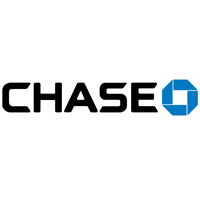Top Class Actions’s website and social media posts use affiliate links. If you make a purchase using such links, we may receive a commission, but it will not result in any additional charges to you. Please review our Affiliate Link Disclosure for more information.

The Chase Auto TCPA lawsuit alleges that Chase used an automatic telephone dialing system to place robocalls to Steven B.’s cell phone in the year previous to filing the lawsuit.
Eventually, in April 2016, the plaintiff spoke to a company representative to request that these robocalls cease. The Chase Auto TCPA lawsuit claims, however, that the company continued to place these robocalls to Steven’s cell phone number.
Steven B. noted in his Chase Auto TCPA lawsuit that the calls made by Chase were indicative of robocalls because of a few tell-tale signs, including the silence before connection with an available representative.
Even after requesting that these robocalls stop and revoking any prior express consent for such contact, Chase Auto continued to barrage Steven’s cell phone with these calls.
At this point, after revoking any prior consent, robocalls were made in knowing and/or willful violation of the TCPA, entitling the plaintiff to more substantial damages.
TCPA Basics
The Telephone Consumer Protection Act, or TCPA, was first instigated in 1991. The Telephone Consumer Protection Act was intended to protect consumers from unwanted solicitation through technology.
The Telephone Consumer Protection Act has always focused on the placement of unwanted robocalls, or the use of an auto dialer or pre-recorded messaging system to contact consumers who have not given their explicit permission to receive such calls.
However, as new technology such as cell phones has emerged, the TCPA has further expanded to include SMS text messaging as well as traditional robocalls.
Reporting Violations of the TCPA
Reporting TCPA violations or filing a lawsuit over unwanted robocalls like this Chase robocall lawsuit can help force companies to comply with TCPA rules. Reports of such violations may also reward consumers with a set amount of award money per individual violation.
According to the Federal Communications Commission, or FCC, reports of TCPA violations are extremely common. The FCC received more than 215,000 individual TCPA complaints in 2014 alone.
If you have received robocalls from a company such as Chase Auto without having given permission, you may be able to report these violations and receive compensation per violation.
A company such as Chase Auto Finance that makes robocalls in willful or knowing violation of the TCPA, as in the case of this Chase Auto TCPA lawsuit, may be subject to higher fees.
For instance, a call simply violating the TCPA can entitle the plaintiff to $500, but a violation made in willful or knowing violation of the TCPA can increase that award to up to $1,500, or triple the original award.
Keep messages and phone records of the robocalls placed to your phone. In order for your TCPA lawsuit to be most effective, you will need proof of these violations.
The Chase Auto TCPA Lawsuit is Case No. 2:16-cv-06407, filed in the U.S. District Court for the Eastern District of New York.
Join a Free TCPA Class Action Lawsuit Investigation
If you were contacted on your cell phone by a company via an unsolicited text message (text spam) or prerecorded voice message (robocall), you may be eligible for compensation under the Telephone Consumer Protection Act.
ATTORNEY ADVERTISING
Top Class Actions is a Proud Member of the American Bar Association
LEGAL INFORMATION IS NOT LEGAL ADVICE
Top Class Actions Legal Statement
©2008 – 2024 Top Class Actions® LLC
Various Trademarks held by their respective owners
This website is not intended for viewing or usage by European Union citizens.














